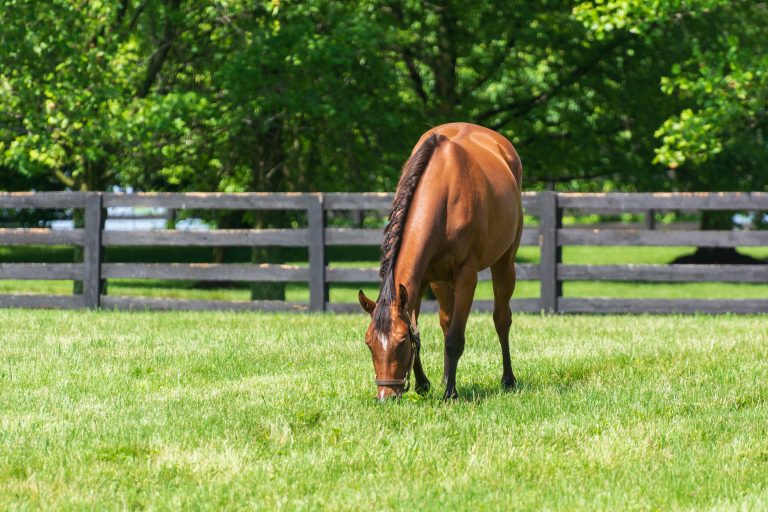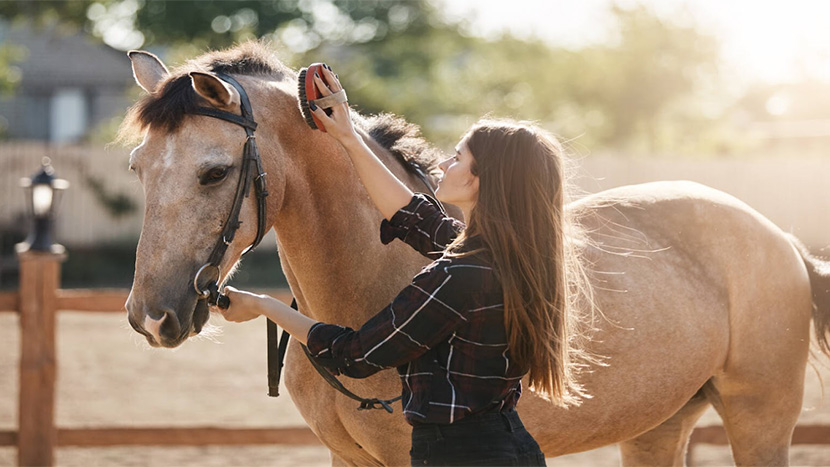The enrichment for senior horses plays a crucial role in maintaining their health and happiness. As horses age, their needs change, and providing activities that stimulate their minds and bodies is essential. In this article, we will explore various ways to enrich the lives of senior horses, ensuring they enjoy their golden years to the fullest.

Understanding the Needs of Senior Horses
Senior horses, generally those over the age of 15, require special care and attention. Their dietary, physical, and mental needs evolve as they age. Recognizing these changes is the first step in providing proper enrichment for senior horses.
Dietary Adjustments
As horses grow older, their metabolism slows down, affecting their dietary requirements. Senior horses may need a diet rich in fiber and easily digestible nutrients. It’s important to consult with a veterinarian to ensure your horse receives the right balance of nutrients. For more information, refer to this digestive support guide.
Physical Changes
Aging horses often experience joint stiffness and reduced mobility. Regular, gentle exercise can help maintain their physical health. Consider exploring exercise routines designed specifically for older horses to keep them active without overexertion.
Mental Stimulation
Keeping senior horses mentally engaged is just as important as physical exercise. Mental stimulation can prevent boredom and reduce stress. Enrichment activities should be tailored to individual horses, taking into account their personality and preferences.
Activities for Enriching Senior Horses
Interactive Toys and Puzzles
Providing toys and puzzles can stimulate a horse’s mind. These toys can be designed to challenge their problem-solving skills, keeping them entertained and mentally active.
Social Interactions
Horses are social animals. Allowing them time with other horses or even different animals can enhance their mental well-being. Social interactions help reduce loneliness and promote a sense of community.
Environmental Changes
Changing a horse’s environment can provide new stimuli. Rotating pastures, introducing new scents, or adding obstacles for them to explore can make their surroundings more engaging.
Regular Grooming
Grooming sessions not only help with hygiene but also serve as bonding time. It can be a relaxing activity for horses and an opportunity for owners to check for any signs of health issues.
Health Considerations for Senior Horses
Regular Veterinary Check-Ups
Routine veterinary visits are essential to monitor the health of senior horses. These check-ups can help detect and address any health issues early on. Learn more about annual check-ups here.
Joint and Mobility Support
Joint supplements and targeted exercises can aid in maintaining mobility. Stretching routines can also be beneficial. For recommended stretching routines, visit this resource.
Dental Care
Dental health is crucial for older horses. Regular dental check-ups can prevent issues such as tooth decay or gum disease, which can affect their ability to eat properly.
Creating a Comfortable Living Environment
Appropriate Bedding
Senior horses often require softer bedding to support their joints and provide comfort. For the best bedding options, check out this guide.
Stable Conditions
Ensure that the stable environment is safe and comfortable. Adequate ventilation, temperature control, and cleanliness are essential to prevent health issues.
Safe Pasture Areas
Pasture safety is vital. Regularly inspect and maintain fences, remove hazardous objects, and ensure that pastures are secure for grazing and exploration.
Summary
Providing enrichment for senior horses requires understanding their unique needs and making adjustments to their care routine. By focusing on dietary needs, physical and mental stimulation, health care, and a comfortable living environment, we can enhance the quality of life for our aging equine companions.

Frequently Asked Questions
1. How often should I exercise my senior horse?
Senior horses should be exercised regularly but gently. Consult with a veterinarian to determine the appropriate exercise routine.
2. What are some signs of aging in horses?
Signs of aging in horses include greying hair, weight changes, stiffness, and dental issues.
3. How can I make my senior horse’s environment more enriching?
Introduce new toys, social interactions, and environmental changes to keep their surroundings stimulating.
For more tips on caring for older horses, visit this resource.
This article contains affiliate links. We may earn a commission at no extra cost to you.
